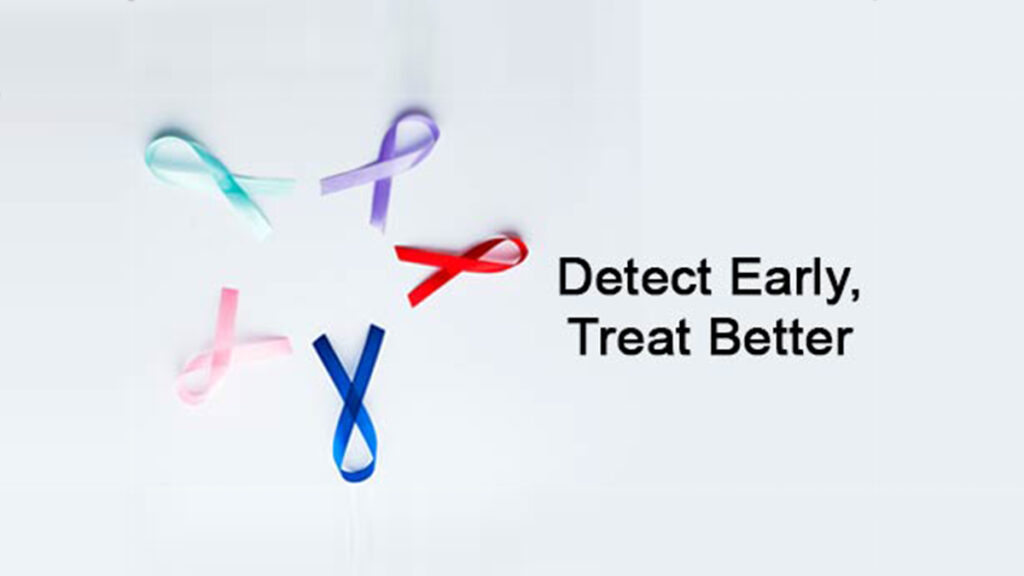Cancer is a serious opponent, but the prognosis is usually much better when the disease is detected in its early stages. Owing to the rapidly expanding medical science and raising awareness, early cancer detection is now more attainable than it has ever been.
Here, we will be talking about the approaches to early detection and prevention that can lead to saving lives. You have to go through the blog at the earliest stage to make the distance between your family member’s life and the danger as far as possible.
Understanding Cancer:
Let us proceed to discuss detection methods but first, it is essential to know what cancer is. Cancer denotes a process of uncontrolled dividing of abnormal cells in the body. These cells can create tumours and spread to other parts of the body, manifesting severe health complications.
Types of Cancer:
Cancer is a large group of diseases with various types, each possessing its specific characteristics and risk factors. Common ones are breast cancer, lung cancer, prostate cancer, colon cancer, and skin cancer, among others. Knowing the representative risk factors connected with each class may allow people to take precautionary measures to avoid such risks and detect them early.
Early Detection Methods:
It’s early detection that becomes critical in the improvement of cancer results. Here are some essential methods for detecting cancer in its early stages: Here are some crucial methods for detecting cancer in its early stages:
Screening Tests:
The purpose of screening tests is to diagnose cancer even before usual symptoms are manifested and thereby provide earlier treatment. Examples include:
- Mammograms for breast cancer.
- Colonoscopies for colorectal cancer.
- When pap smear or pap tests are used to diagnose cervical cancer,
- For prostate cancer, PSA.
Emphasis should be given to compliance with the suggested screening guidelines as it is dependent on age, gender, and individual risk factors. Routine cancer screen can recognize cancer while it is at its early and the easiest to treat stage.
Self-Examination:
Self-examination is integral to identifying any changes or abnormalities in your body that could be early warning signs of cancer. One of the most illustrating examples is breast self-exam, which allows women to look for lumps or changes in breast tissue and individual monitoring of moles for early signs of skin cancer.
Getting to know your body and watching for any changes is a form of empowerment that can help you get medical assistance immediately if something appears suspicious to you.
Genetic Testing:
Genetic testing helps look for gene mutations that are inherited and predisposed to certain cancers, for instance, BRCA1 and BRCA2 mutations associated with breast and ovarian cancers.
Those with a family history of cancer will be guided by counsellors to enable them to undergo genetic testing and risk evaluation, which will help them have preventive strategies and early detections.
Prevention Strategies:
Diagnosis at the early stages is of great importance. Besides, adopting preventive measures might also help to avoid cancer. Here are some effective prevention strategies: Here are some effective prevention strategies:
1. Healthy Lifestyle:
To keep a healthy lifestyle, it is recommended to eat a diet that comprises fruits, vegetables, whole grains, and lean protein. Limiting the consumption of processed foods, sugary snacks, and red meat should be promoted.
To stay physically fit, try to keep to a regular workout program. It will not only help in maintaining a healthy weight, but it may also lower the risk of some types of cancers, e.g., breast and colon cancer.
2. Avoid Tobacco:
Although tobacco use is the prime reason behind cancer, throat, lung, and mouth cancers are the leading types of the latter. Smoking cessation and no second-hand smoke will decrease your risk. If you need assistance in kicking your smoking habit, consider contacting healthcare professionals or support groups for help.
3. Sun Protection:
Shield your skin from the harm of UV rays by using sunscreen with a high SPF, looking for shade around high sun hours, and wearing protective clothing like hats and sunglasses. Never use tanning beds and sun lamps as they will boost your chances of getting skin cancer.
4. Vaccination:
Some vaccines may prevent particular cancers. Such HPV vaccines can prevent HPV infections and cancers among which the most common are cervical cancer. Ensure you are up-to-date on your immunizations as per your age. Always follow your doctor’s advice.
All Summed Up!
Early detection and prevention are powerful tools in the fight against cancer. By staying informed about screening guidelines, recognizing the importance of self-examination, and adopting healthy lifestyle habits, individuals can take proactive steps to detect cancer early or even prevent it altogether.
Remember, knowledge is critical, and early action can make a life-saving difference. Moreover, if you need professional consultation related to the early detection of cancer, feel free to visit the German Heart Centre. They are highly expert and offer blood tests that are used to diagnose cancer.

